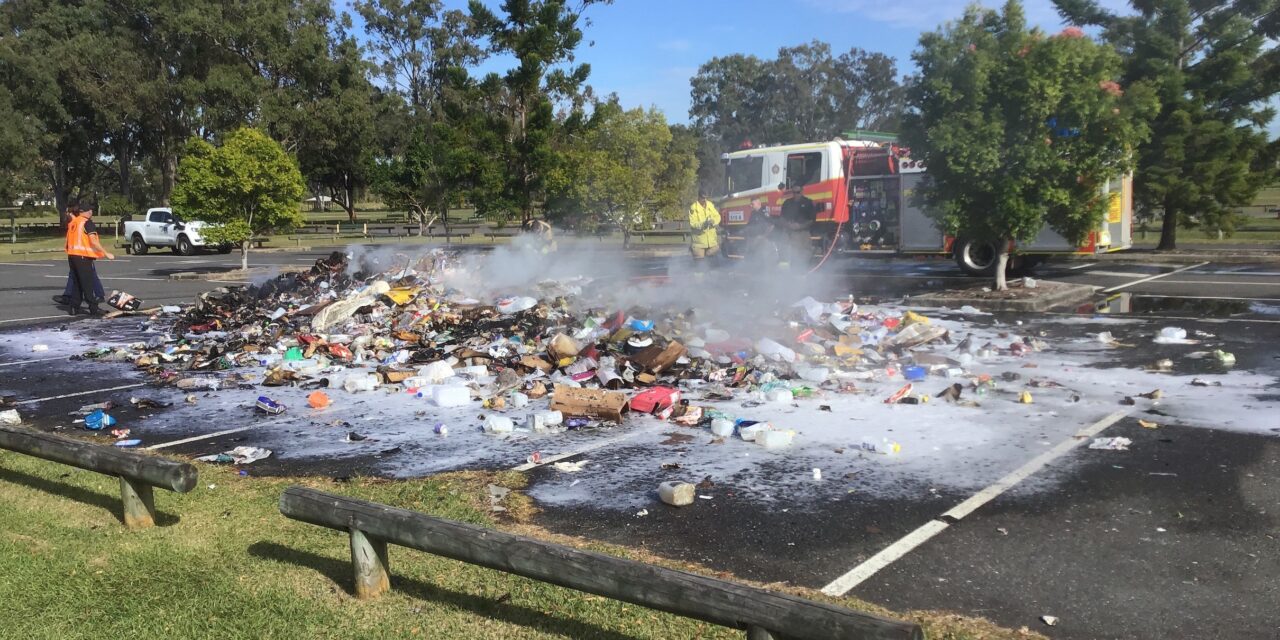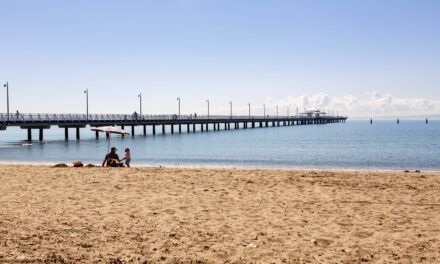Lord Mayor Adrian Schrinner is urging Brisbane residents to ensure batteries and other flammables are disposed of safely follow a spike in dump and garbage truck fires of more than 75 per cent.
Cr Schrinner said residents incorrectly putting batteries and flammables into their household bins was creating a serious safety hazard with life-threatening explosions and fires occurring too often.
“Brisbane is a city that’s renowned for being clean, green and sustainable so ensuring we dispose of waste correctly is really important,” he said.
“Making sure we all dispose batteries and other flammables correctly isn’t just about sustainability, it’s also about safety.
Explosions and fires caused by batteries, gas canisters and other flammable items can happen suddenly when disposed of incorrectly, endangering residents, workers, and the environment.
In some cases, we’ve seen whole loads of collected rubbish needing to be dumped on the side of the road to avoid collection vehicles catching alight.
Batteries, including those in vape products and escooters and ebikes, should never end up in the rubbish bin – they’re quite literally a fire or explosion waiting to happen.”
There were 32 rubbish-related fire incidents in 2022 compared to 18 in 2020.
Of the 80 fires over the past three years there were at least 14 instances of so-called “hot loads”.
This is where there has been an explosion in the back of a garbage truck and the driver has had to take drastic action and dump the entire load onto the street to save not only the truck, but also themselves.
Other fires have started in the rubbish pits at Council’s Resource Recovery Centres where smouldering rubbish suddenly explodes into flames
Queensland Fire and Emergency Services Assistant Commissioner John Cawcutt said the correct disposal of batteries, in particular rechargeable lithium-ion batteries, was an important step in reducing waste fires.
“It is inevitable that a rechargeable lithium-ion battery disposed of incorrectly will incur some form of trauma that results in battery damage through the rubbish collection and disposal process,” Mr Cawcutt said.
“Damaged or crushed rechargeable lithium-ion batteries pose an even greater risk of explosion, and in the disposal process they’re creating a recipe for disaster.
For this reason, it is vital that people never dispose of rechargeable lithium-ion batteries in general household or recycling bins, industrial bins or piles.”
Cr Schrinner said residents can recycle all batteries at any of Council’s Resource Recovery Centres for free.
“Our four Resource Recovery Centres are open every single day of the year and ready to safely recycle batteries,” he said.
“In 2022 more than 22 tonnes – the equivalent of more than 10 Toyota Hilux utes – were disposed at Council’s Resource Recovery Centre.
There are also plenty of other places to recycle batteries, including Battery World (for car, boat and motorbike batteries), B-cycle drop-off points (including Aldi, Woolworths, Officeworks and Bunnings stores), and EcoActive collection service.
There are also free Household Hazardous Waste days to allow Brisbane residents to dispose of items that aren’t accepted in general waste bins, with the first one for 2023 set to take place on Saturday 4 March at our Willawong resource recovery centre.
Residents can dispose of everyday household items such as bleach, garden and pool chemicals and cleaning solvents as well as batteries and empty BBQ gas bottles and get advice from chemists on site to help dispose of their waste correctly.”
For more information, download the Brisbane Bin and Recycling app to find your local resource recovery centre or visit www.brisbane.qld.gov.au
Resource Recovery Centres:
- 728 Tilly Road, Chandler – 6.30am to 5.45pm
- 101 Upper Kedron Road, Ferny Grove – 6.30am to 5.45pm
- 1372 Nudgee Road, Nudgee Beach – 6.30am to 5.45pm
- 360 Sherbrooke Road, Willawong – 6.30am to 5.45pm
Free Hazardous Waste Days 2023
- Saturday 4 March, Willawong
- Saturday 3 June – Ferny Grove
- Saturday 2 September – Chandler
- Saturday 2 December – Nudgee





